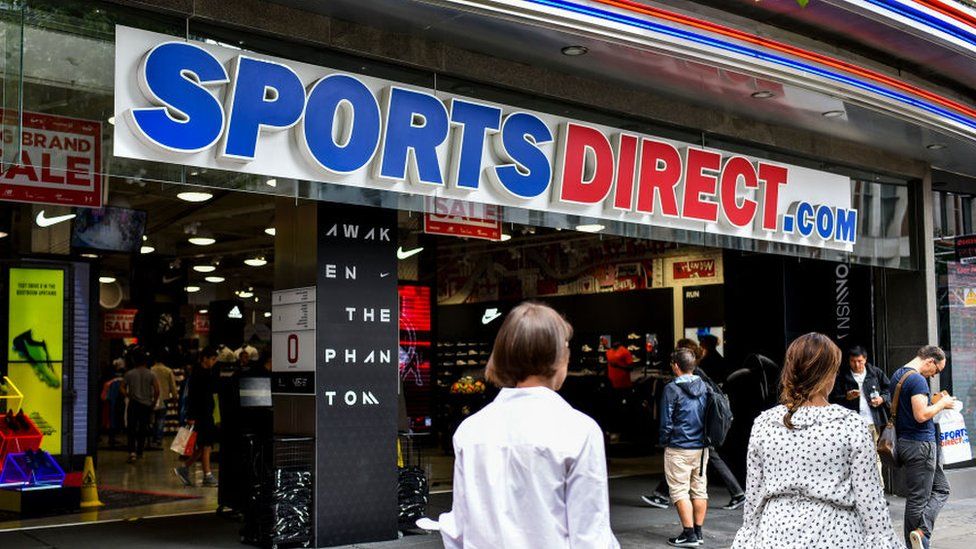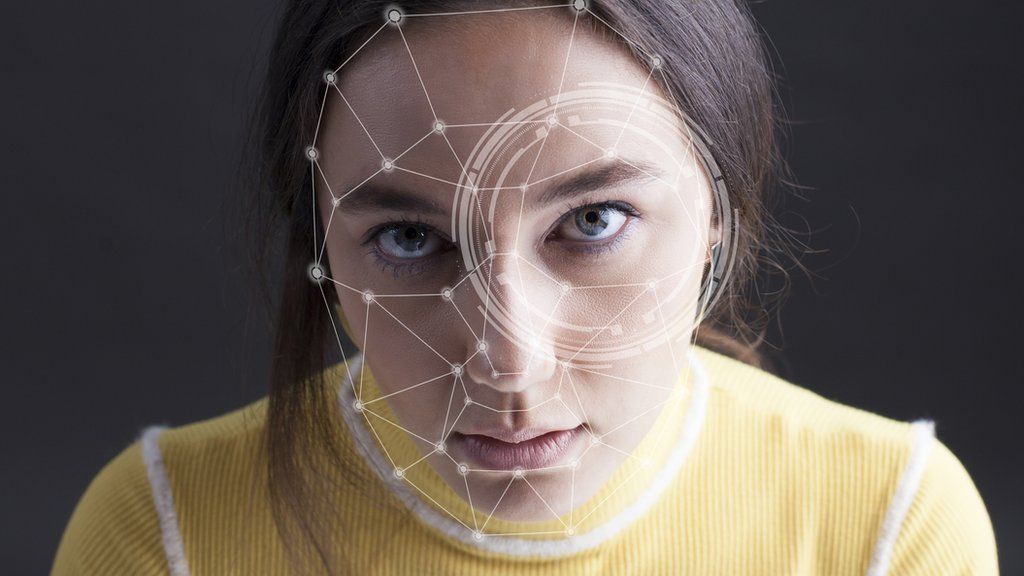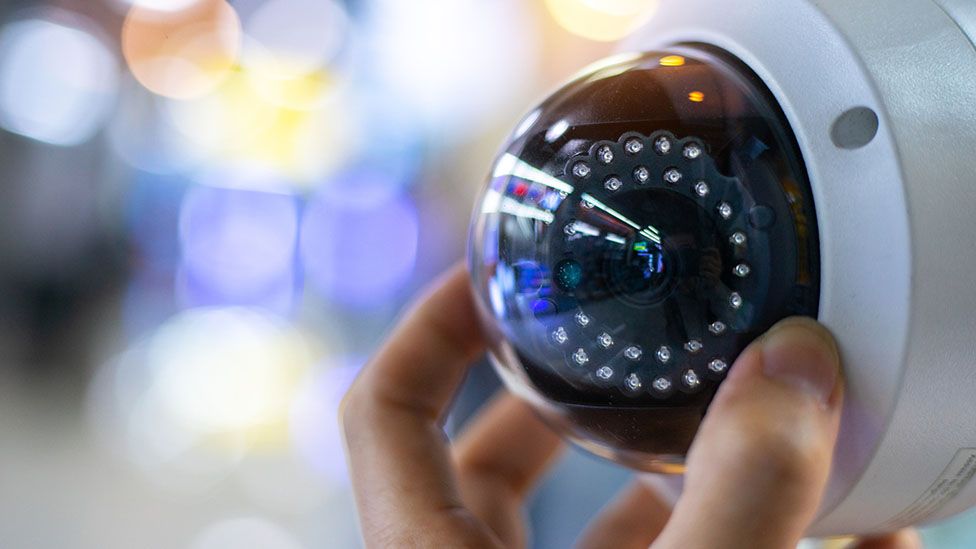Sports Direct owner defends live face-recognition camera use

Sports Direct’s parent company says live face-recognition (LFR) technology has cut crime in its shops.
The cameras check faces against a watch-list, using a system called Facewatch.
On Monday, 50 MPs and peers supported a letter opposing the use of LFR by Mike Ashley’s Frasers Group, which owns the company and other chains such as Flannels.
The company says it tells shoppers when the technology is installed in a shop.
Frasers Group told BBC News it took its responsibilities around LFR extremely seriously and stressed its effectiveness.
“Since installing this technology, we have seen a significant reduction in the number of criminal offences taking place in our stores,” it said.
‘Potential criminal’
The letter criticising its use was organised by campaign groups Big Brother Watch, Liberty and Privacy International.
It says research into face-recognition technology suggests;
- 87% of “matches” in Metropolitan Police trials misidentified innocent people
- women and people belonging to some ethnic minorities are more likely to be misidentified than white men are
The technology up-ends the democratic principle of suspicion preceding surveillance and “treats everyone who passes the camera like a potential criminal”, the letter adds.
Signatories to the letter come from across the political spectrum and include:
- former Conservative minister David Davis MP
- former Labour shadow chancellor John McDonnell MP
- former Liberal Democrat leader Tim Farron MP
- Green MP Caroline Lucas
In March, campaigners claimed the technology was used in at least 27 Frasers Group shops.
Facewatch says its system is proven to prevent crime.
‘Accredited super-recognisers’
“Unfortunately, in some stores, they experience unacceptable levels of threats and abuse to their staff by criminals. It is in those stores that they deploy Facewatch,” company founder Simon Gordon told BBC News.
The system alerted staff when someone on Facewatch’s shared national face-recognition database entered a subscriber’s shop, he said.
Shop managers’ requests to add someone to the database had to be backed-up with full witness statements and explanations, which a panel of former police officers reviewed before accepting, Mr Gordon said.
“There is due process followed to ensure we only include individuals reasonably suspected of crime,” he said.
Shop staff and “accredited super-recognisers” – analysts with an aptitude for recognising faces – checked every alert, he told BBC News.
Mr Gordon disputes the accuracy claims the letter makes about the Met Police’s LFR, saying Facewatch is more than 99% accurate.
His figures have not been independently audited.
‘High bar’
Facewatch says its LFR system follows the Surveillance Camera Code of Practice, which applies to police and local authorities but is optional for private companies.
The code has been criticised as providing only “bare-bones” guidance – and some experts suggest new laws are needed.
But Mr Gordon said the Information Commissioner’s Office had confirmed Facewatch’s use was lawful.
The ICO has previously, however, expressed serious concerns about LFR technology, saying deployments must meet a “high bar”.
“We should be able to take our children to a leisure complex, visit a shopping centre or tour a city to see the sights without having our biometric data collected and analysed with every step we take,” the previous information commissioner, Elizabeth Denham, blogged.
Related Topics
-
-
29 June 2022

-
-
-
26 July 2022

-
